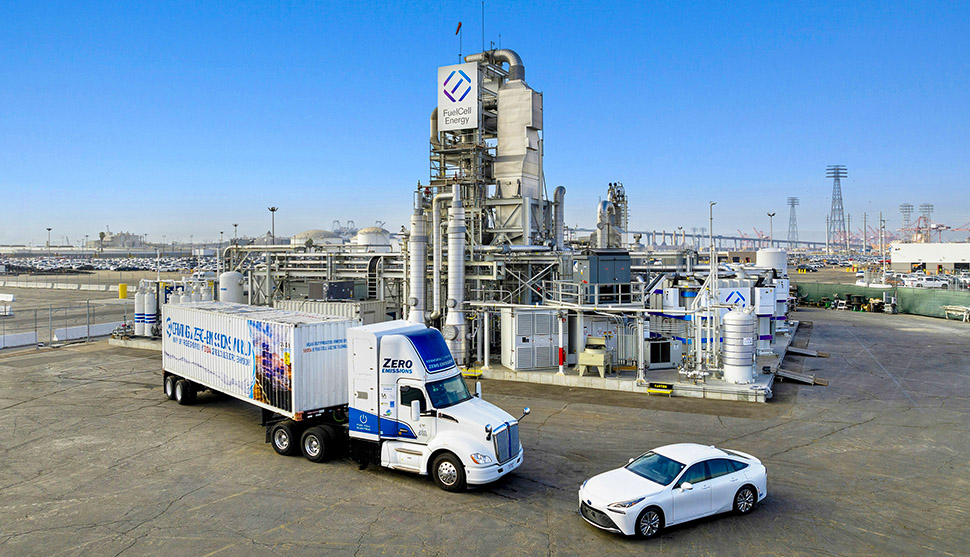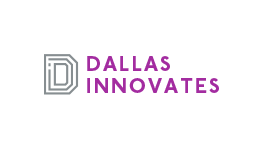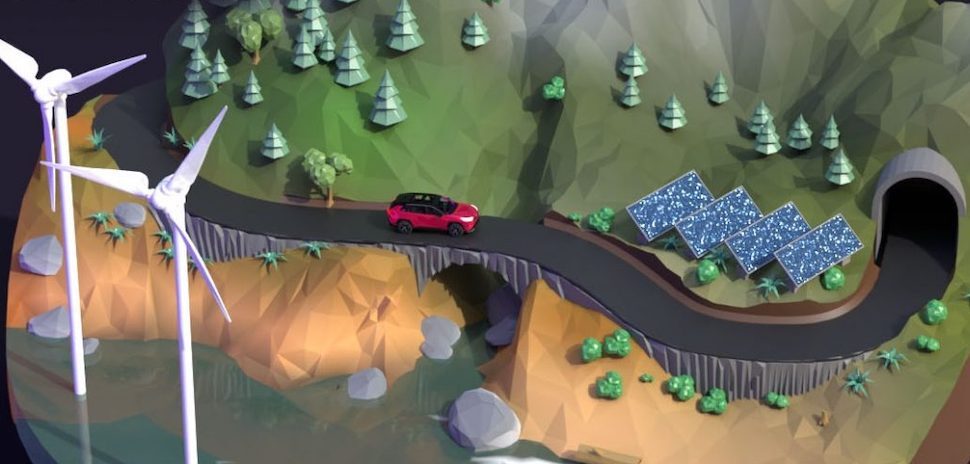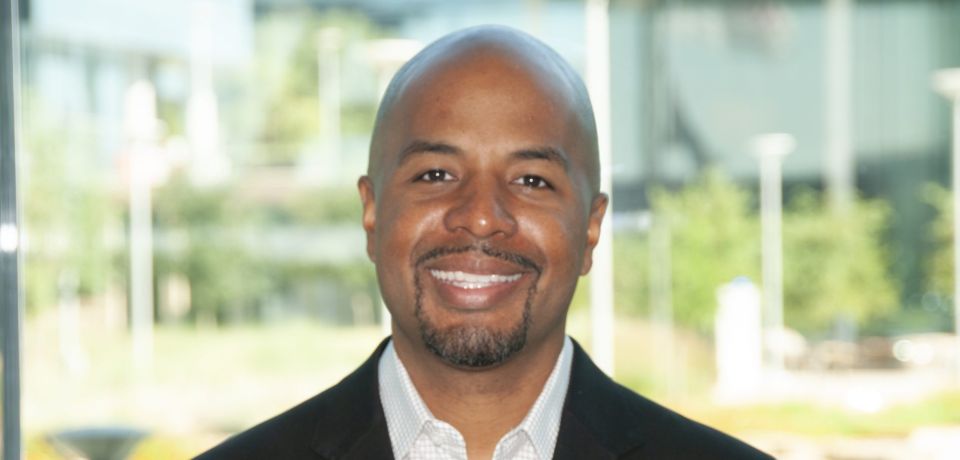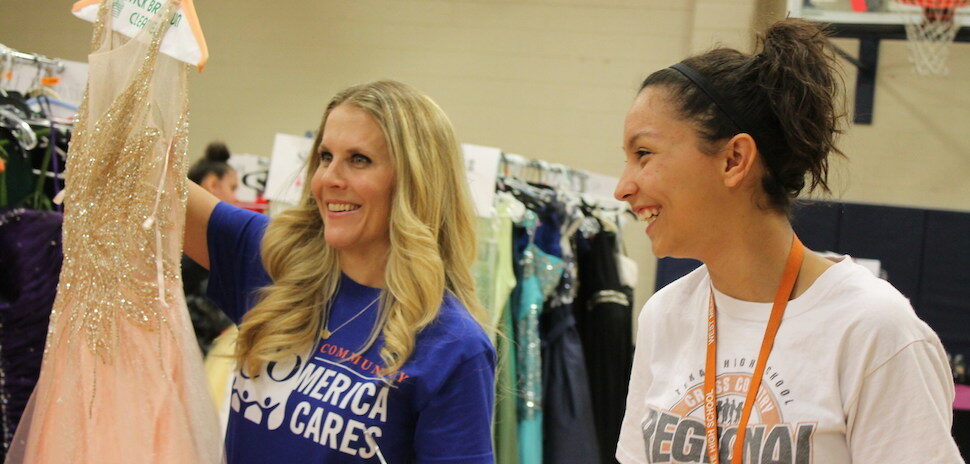“The great news is this real-world example can be duplicated in many parts of the globe.”
Chris Reynolds
Chief Administrative Officer
Toyota Motor North America
.…on Toyota partnering with FuelCell Energy to complete “the world’s first Tri-gen production system.”
![]()
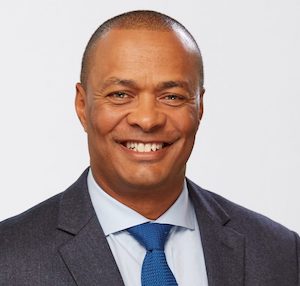
Toyota’s Chris Reynolds
Plano-based Toyota Motor North America has been making innovative moves at its operations in the port of Long Beach, California. Partnering with Connecticut-based FuelCell Energy, the companies announced today the completion of what they call “the world’s first Tri-gen production system.”
In this case, there truly is power in threes. The Tri-gen system, owned and operated by FuelCell Energy, produces renewable electricity, renewable hydrogen, and water from directed biogas.
FuelCell Energy has contracted with Toyota to supply the products of Tri-gen under a 20-year purchase agreement, Toyota announced.
“By utilizing only renewable hydrogen and electricity production, TLS Long Beach will blaze a trail for our company,” Reynolds said in a statement. “Working with FuelCell Energy, together we now have a world-class facility that will help Toyota achieve its carbon reduction efforts, and the great news is this real-world example can be duplicated in many parts of the globe.”
A way to scale hydrogen-powered fuel cell tech
Toyota says that Tri-gen is an example of FuelCell Energy’s ability “to scale hydrogen-powered fuel cell technology, an increasingly important energy solution in the global effort to reduce carbon emissions.”
The innovative system will enable Toyota Logistic Services Long Beach to be the company’s first port vehicle processing facility in the world powered by “onsite-generated, 100% renewable energy,” Toyota said.
FuelCell Energy CEO Jason Few said his company is committed to helping its customers surpass their clean energy objectives.
“By working with FuelCell Energy, Toyota is making a powerful statement that hydrogen-based energy is good for business, local communities, and the environment,” Few said in a statement. “We’re extremely pleased to showcase the versatility and sophistication of our fuel cell technology and to play a role in supporting Toyota’s environmental commitments.”
Creating renewable energy for a port that processes 200,000 new Toyota and Lexus vehicles a year
Toyota’s logistics facility at the Port of Long Beach processes some 200,000 new Toyota and Lexus vehicles a year, the company said. The goal of the Tri-gen system is to reduce the carbon impact of all that processing via renewable hydrogen.Toyota said Tri-gen produces 2.3 megawatts of renewable electricity, “part of which will be off-taken by TLS Long Beach to support its operations at the port.”
The Tri-gen system can produce up to 1,200 kilograms a day of hydrogen, Toyota added, which will provide for TLS Long Beach’s fueling needs for its incoming light-duty fuel cell electric vehicle Mirai, while also supplying hydrogen to the nearby heavy-duty hydrogen refueling station to support TLS logistics and drayage operations at the port.
Meanwhile, an estimated 400 gallons of water will be co-produced per day from Tri-gen’s hydrogen production process, Toyota said. The water will be used by TLS Long Beach for car wash operations for vehicles that come into port prior to customer delivery. “This will help decrease the use of constrained local water supplies by approximately half a million gallons per year,” Toyota noted.
“Renewable hydrogen is an important fuel for the future of the Port of Long Beach and the shipping industry,” Port of Long Beach CEO Mario Cordero said in a statement. “The renewable hydrogen generated by the ‘Tri-gen’ system that Toyota commissioned, and similar projects, is part of our multi-strategy approach to help fuel the transition of equipment like locomotives, harbor craft, cargo-handling equipment and trucks to zero emissions.”
Tri-gen’s carbon neutral products are expected to reduce more than 9,000 tons of CO2 emission from the power grid each year at the Long Beach facility, Toyota added, while helping to avoid more than six tons of grid NOx emissions and potentially reducing diesel consumption by more than 420,000 gallons per year.
For more of who said what about all things North Texas, check out Every Last Word.
![]()
Get on the list.
Dallas Innovates, every day.
Sign up to keep your eye on what’s new and next in Dallas-Fort Worth, every day.










